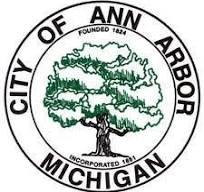Over the last few years, the City of Ann Arbor has introduced several local ordinances related to property rentals. These ordinances are intended to give renters more control over their options, and reduce the confusion and stress that can sometimes come with trying to find rental housing.
Student Legal Services has created a summary of the main changes, and more information about the ordinances can be found on the City of Ann Arbor website.
8:532 –Rental Application Fees and Pre-tenancy Fees
The Ann Arbor City Council determined that residential rental fees should be regulated to protect rental housing applicants from “unnecessary and predatory collection of unreasonable fees assessed to tenants and prospective tenants.” As such, City Council amended the housing code ordinance to regulate application fees and pre-tenancy fees charged to prospective tenants. The ordinance became effective on January 26, 2025.
The ordinance bans pre-tenancy fees which include, but are not limited to, wait list fees, holding fees, option fees, preparation fees, move-in fees or any other fee incurred prior to the start of a term of a lease for Residential Premises.
Further, the ordinance limits rental application fees to $50 and any application fee charged must be refunded within sixty (60) days if the applicant is not offered an apartment for rent.
In March 2024, Ann Arbor City Council amended Section 8:530 of the Ann Arbor Housing Code. The current ordinance changes the prior ordinance to prevent landlords from making a renewal offer to a tenant until 180 days into their current lease. Tenants have 30 days after receiving the renewal offer to decide if they want to renew their lease.
Pursuant to the ordinance the landlord must offer the current tenant(s) the right to renew unless there is good cause not to do so. If a landlord does not have good cause not to offer a renewal and fails to make a good faith offer to renew a lease with a tenant, the landlord shall pay relocation assistance (two months of rent based on the current lease) to the tenant.
Good cause includes the following:
(i) The tenant has not accepted the successive lease period within the time specified in the offer;
(ii) The tenants who accepted the renewal offer, along with any replacement tenants acceptable to the landlord, have not returned a signed lease to the landlord within 10 days of receipt;
(iii) The landlord can demonstrate a justification for not offering renewal, that is in existence within the time renewal is to be offered, that would permit a termination of tenancy under the Summary Proceedings Act, MCL 600.5714;
(iv) The owner seeks possession so that the owner or a member of the owner’s immediate family may occupy the unit as that person’s principal residence and no substantially equivalent unit is vacant and available in the same building. “Immediate family” includes the owner’s domestic partner or spouse, parents, grandparents, children, siblings, and the siblings, parents, grandparents, or children of the owner’s domestic partner or spouse; or
(v) The owner will not rent the premises for the successive term.
For more information about your tenant rights and for legal advice about off-campus housing, please contact Student Legal Services.

